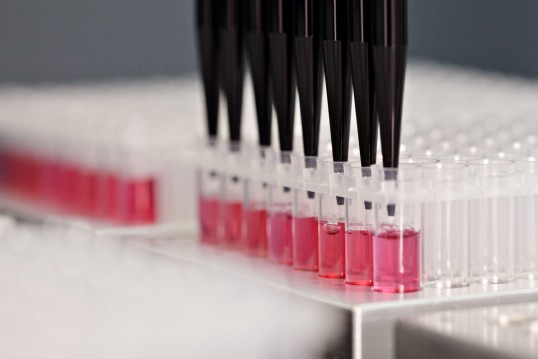Hazardous substances

Source: © Volker Wiciok, IPA
Hazardous substances are substances, preparations or products with hazardous properties. They can cause acute or chronic damage to human health and be flammable, explosive or hazardous to the environment.
Hazardous substances include not only chemicals, but also wood dust, gasoline, diesel motor emissions, welding smoke, ozone and anaesthetic gases amongst others.
Industrial and public-sector companies in nearly all lines of business (e.g. chemical manufacturing and processing, construction, metalworking and healthcare) carry out a wide range of activities using hazardous substances.
Activities involving hazardous substances can lead to accidents, occupational diseases and work-related health hazards. The German social accident insurance institutions have a statutory mandate to use all appropriate means to ensure that such accidents, occupational diseases and work-related health hazards are prevented. Both the German Social Accident Insurance (DGUV) and its members (German social accident insurance institutions for trade and industry and the public sector) fulfil that mandate using a variety of measures. In particular, they guard against the danger of hazardous substances by providing information through various channels and offering consulting services within the framework of the supervisory duties they are required to deliver under the terms of the German Social Code VII. In-house and governmental committees also see their experts involved in the drawing up of corresponding practice-oriented regulations.
Contact

Dr. Jenny Teitzel
Central Prevention Division
Rules and regulations
Telefon: +49 30 13001-4525
E-Mail